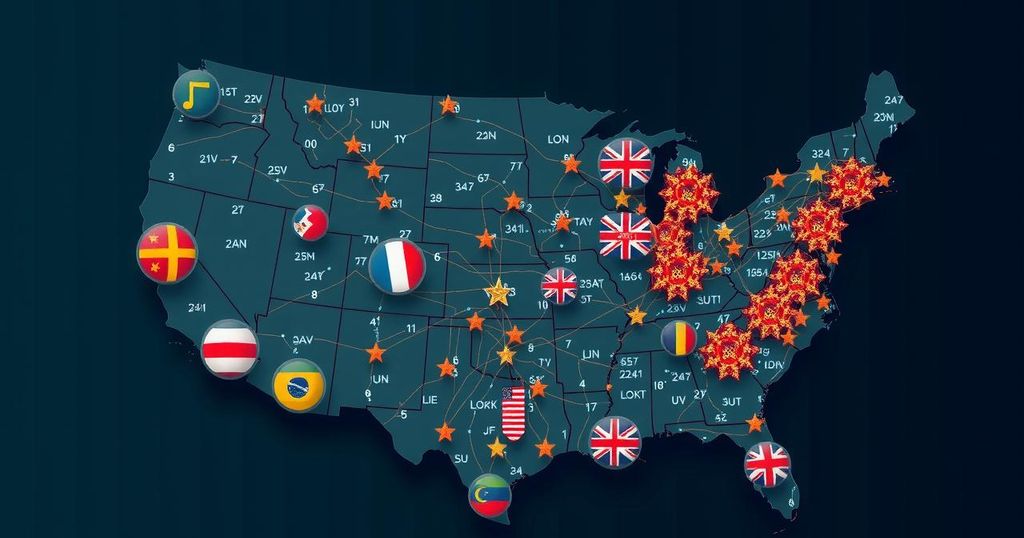Lessons from U.S. Elections: Insights for Pakistan’s Democracy
This article explores the parallels between U.S. and Pakistani democracies, highlighting how disillusionment with political elites has fueled support for populist leaders like Donald Trump and Imran Khan. It emphasizes the importance of addressing the concerns of marginalized groups to ensure effective representation and legitimacy in democracy.
America and Pakistan exhibit stark differences in their democratic systems, yet the recent U.S. elections provide notable parallels relevant to Pakistan. Many Trump supporters voiced their concerns about economic issues and immigration but more significantly felt marginalized and disregarded by traditional political structures. They believed the democratic framework had failed to represent their interests, leading to a dynamic where Trump became a vehicle for their discontent.
Trump’s appeal among his supporters stemmed from a shared desire to disrupt the existing political order, reflecting a deep-seated sentiment of being overlooked. Exit polls indicated that voters prioritized leadership qualities and the ability to instigate change, suggesting a broader yearning for authenticity in leadership. In Pakistan, a similar sentiment prevails where the democratic processes are often manipulated to serve elite interests, leaving the majority disillusioned and searching for solutions.
The political landscape in Pakistan mirrors elements seen in America, where populism emerges as a response to elite domination within democracy. Leaders like Imran Khan have recognized and harnessed the frustrations of those marginalized, positioning themselves as champions of the disenfranchised. By tapping into economic grievances and feelings of social injustice, both Trump and Khan generated resonant narratives that offered their supporters a sense of identity and purpose.
Moreover, just as Trump fused populism with extreme nationalism to galvanize his base, populist leaders in Pakistan have capitalized on long-standing grievances, exacerbated by socio-economic challenges and political neglect. The media’s role in amplifying these concerns cannot be understated, as it has opened avenues for public discourse that the political elite have historically ignored.
The crux of the matter lies in recognizing that while populist figures might hold controversial views, their rise signals systemic failures that require acknowledgment. The support for such leaders indicates a fundamental disconnect between ruling entities and the populace. A potential path forward for Pakistan involves embracing the political agency of these groups, allowing them to contest and, if elected, govern to assess their capability against the established order. This approach could ultimately strengthen democratic processes by offering a space for genuine representation.
The article discusses the complexities of democracy in both the United States and Pakistan, focusing on how disillusionment with political elites has led to the rise of populist figures. It highlights the social conditions contributing to the appeal of such leaders, including economic hardship and a sense of marginalization among the working class. The writer draws parallels between the two countries, emphasizing the need for political systems to authentically address the concerns of their citizens to maintain legitimacy and stability.
In conclusion, the similarities between U.S. and Pakistani democratic experiences underscore a critical need for political renewal. Both nations face challenges from populist movements fueled by widespread discontent among neglected groups. Embracing these movements as legitimate expressions of public sentiment could lead to more authentic political discourse and potentially foster a more responsive and inclusive democracy.
Original Source: www.dawn.com




Post Comment